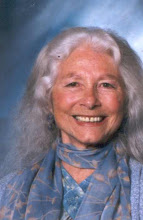From the time I was ten, just out of the fifth grade, I worked in the fields every summer, picking beans on a farm fifteen or so miles outside of Eugene, Oregon, where we lived. My bio-father in San Francisco sent Mom little money for our support, so it was up to me, my older sister Di, twelve, and my brother Russ, who was eight, to find work to pay for school tuition and clothes. Oscar, our stepfather, a Chief Petty Officer at the end of WWII when he and Mom married, made it clear that his salary as an electronics teacher at a vocational school barely covered expenses for a family of five. So Di and I went bean-picking; Russ got a paper route.
Mom woke us at four, fixed us oatmeal and hot chocolate, and packed our lunch. As Di and I shivered and yawned in the back seat, granite-faced Oscar, with silent Mom at his side, drove us in his Chevy sedan across town to the deserted parking lot where the farmer’s stake-truck idled, its headlights casting beams into the darkness. We climbed on to the truck’s worn, wooden bed and waved as our parents drove off. Families, couples, a rabble of unaccompanied kids like us, gangly ‘teens, and worn-looking single people in their twenties and thirties clambered aboard - - all of us white and some just a notch above the poverty line. The farmer ground his truck into gear and slowly moved off; as it rumbled along, the sky lightened to a pearly gray. My sister grabbed my hand and jostled her way directly behind the cab to avoid the wind. While she chatted up friends, I pushed through the tightly packed workers to the back and hung on to a stake as the truck whipped around the curves of the narrow, two-lane road. The wind blasted my hair into my face, stinging it. The farmer turned off onto a rutted, dirt road; the truck bounced along for a couple of dusty miles then shuddered to a stop in front of some wooden outbuildings.
I had never been away from home before. I felt lost in this strange place. Older women comforted me with soothing words and cookies. One day, alone, crouched at the end of a lane, looking for beans, pushing aside raspy green leaves that left itchy red welts on my bare arms, I heard a woman's soft voice,
"Hello, honey. I'm the farmer's wife. What tribe do you belong to?"
Her question startled me mute. I couldn't look at her. She patted my head and moved away. Because of my tan and straight black hair, she had mistaken me for an Indian (Native American in today's PC culture). I smiled to myself and couldn't wait to tell Di. Soon, my competitive spirit kicked in and it became a race between us who could pick the most beans. In early August, at the end of the season which began in mid-June, the farmer doled out our checks. I felt the power of money for the first time, holding a piece of paper with my name on it that I could take to the bank and get back twenty-four dollars in cash - - just enough for tuition. Mom scrounged pennies from the allowance Oscar gave her which she spent in second hand stores on coats, skirts and dresses, making them over for us into trendy fashions. This went on for four years. Late one August after the bean season, she sent Di and me back to San Francisco to live with Dad, in time for me to start high school and my sister to finish her senior year.
I felt my heart sing as the bus crossed the Bay Bridge; we arrived in the City on a foggy, late summer day. I took deep breaths of the tangy air. My worries that Dad had become a stranger disappeared once I saw his eyes light up with a smile and I smelled his familiar shaving lotion. He had a hotel room waiting across from his work (we later moved to an apartment on Octavia). He was a bellman at the Olympic Club on Taylor, a private club for wealthy businessmen and politicians - - anti-Semitic at the time, I discovered, when Dad told me Danny Kaye had applied and was turned down. Di lasted a month; she left to live with a Christian family in Yakima. She'd become an Evangelical Christian in Eugene and feared the City would cause her to "back-slide." I felt hollow inside whenever I thought of her and Mom. We wrote often.
Though Dad opened accounts for me at the Emporium for clothes and gave me money for school, I hated asking him for a few dollars for movies or school events; he’d turn away, open his wallet, then turn around and hand me some singles. So, the summer between my junior and senior years at Mission High, I answered an ad for a counter-girl at Ronson Lighter Company. I followed my mother’s advice on How-to-Get-a-Job, though she had had only one - - as an usherette at the Orpheum Theatre when she and Dad split up. So, for my interview, I wore white gloves, a black and white tailored suit with a peplum, black high-heels, and a white pill-box hat with a black feather sticking out. The one piece of advice I didn’t follow? Tell the truth.

No comments:
Post a Comment